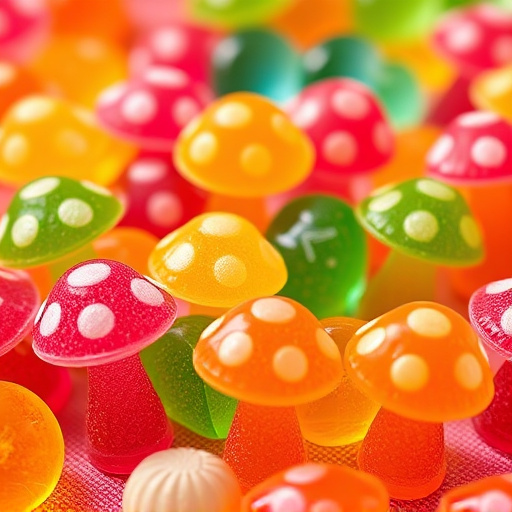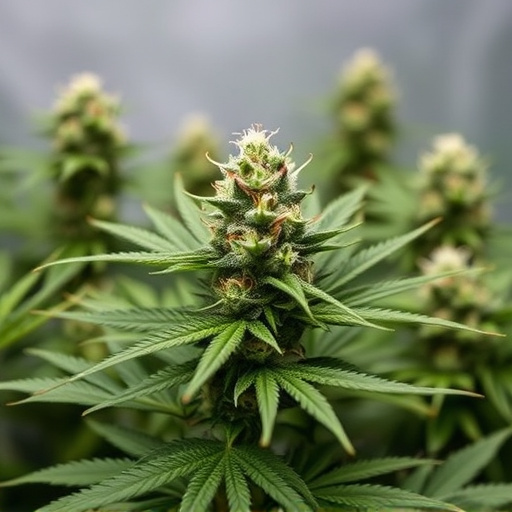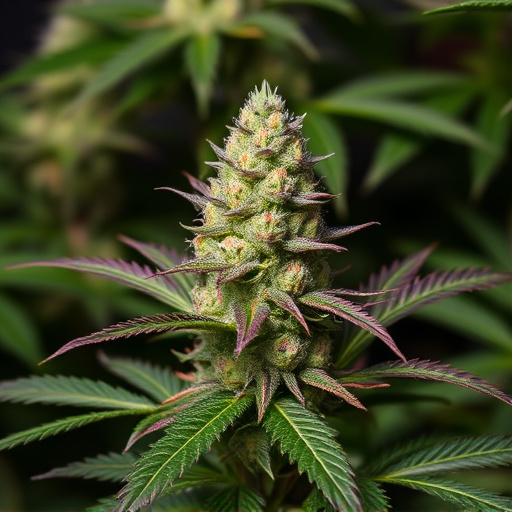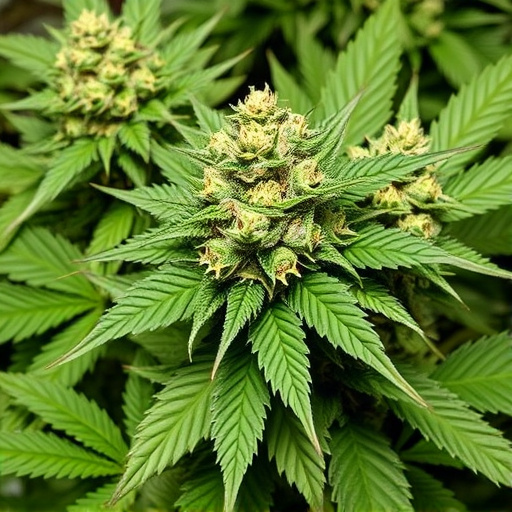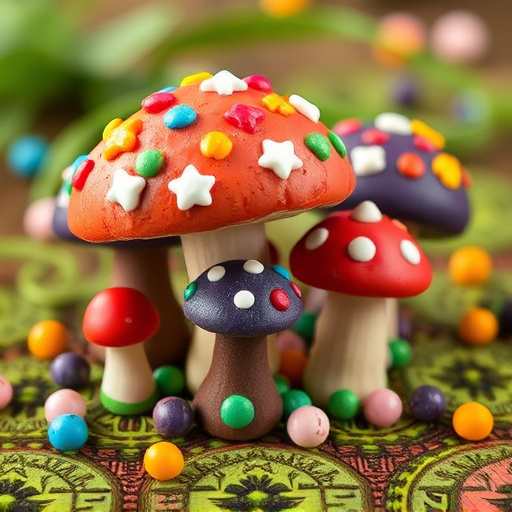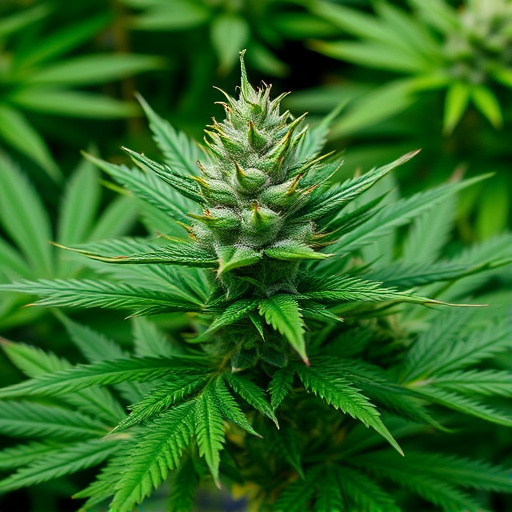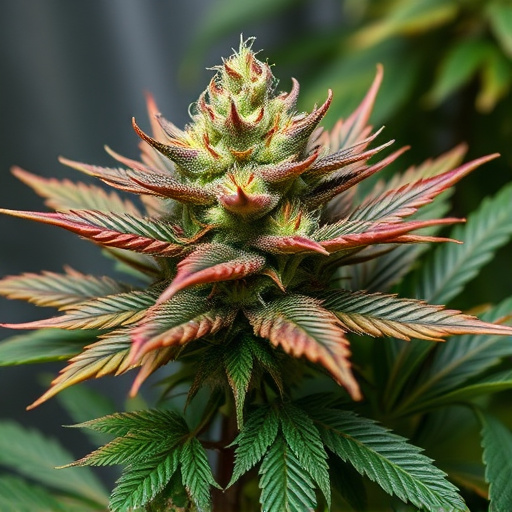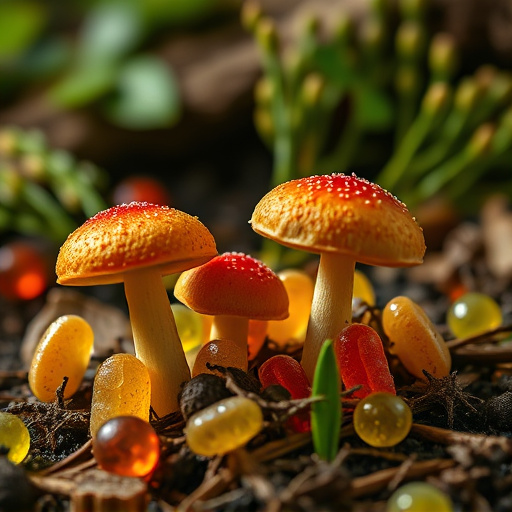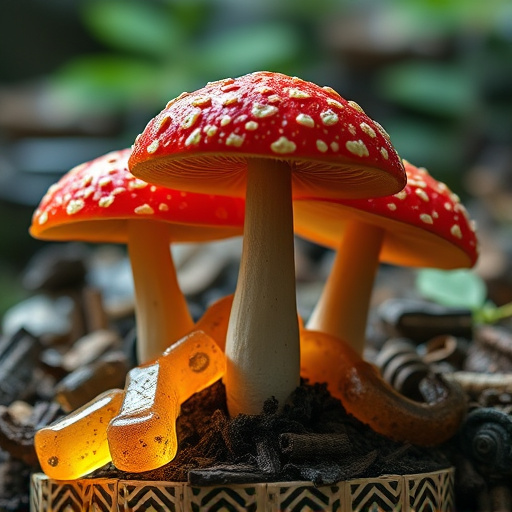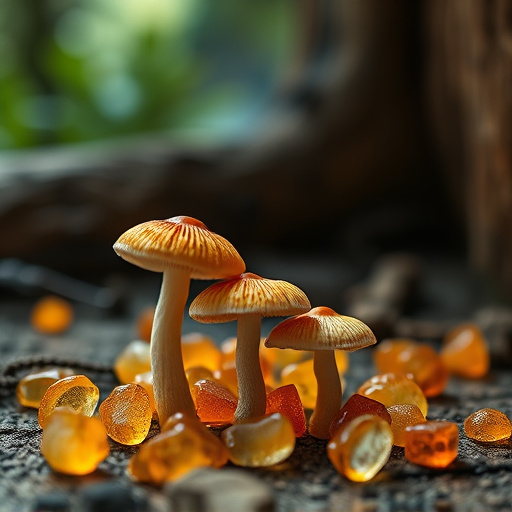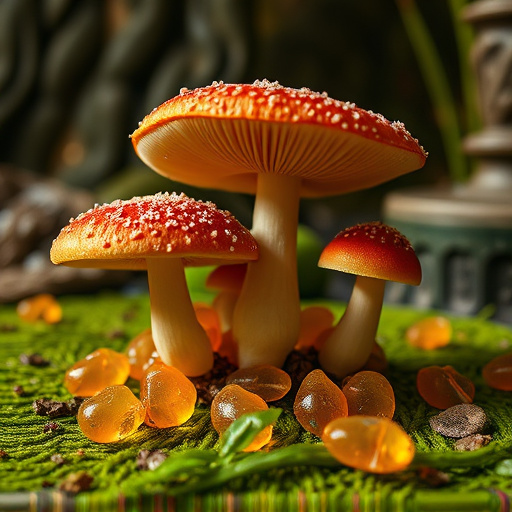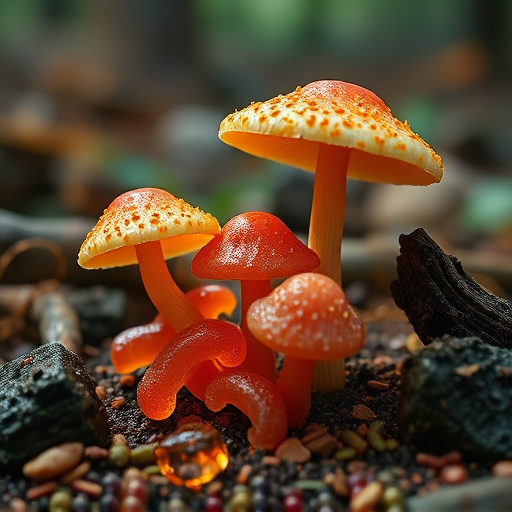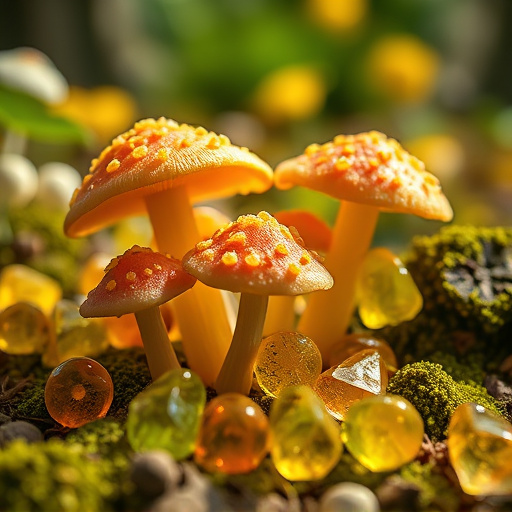Psilocybin, a compound found in magic mushroom gummies, has gained attention for its potential to improve mental health through controlled doses that interact with serotonin receptors. Users report positive effects including reduced anxiety, depression, increased creativity, empathy, and emotional well-being. Magic mushroom gummies offer a safe and effective way to administer psilocybin, showing promise in treating PTSD, substance use disorders, and end-of-life anxiety. They could make psychedelic therapies more accessible for mental health support when used responsibly with professional guidance.
“Unleash the potential of magic mushroom gummies as a revolutionary mental health tool. This comprehensive guide explores the benefits of psilocybin, the active compound in magical mushrooms, and its impact on brain function. We delve into the historical use of psilocybin, modern research backing its therapeutic properties, and how it interacts with the mind to promote well-being.
The rise of magic mushroom gummies as a consumable form offers a discreet, palatable alternative to traditional methods. We review popular brands, highlight their unique features, and provide an essential guide to navigating legalities, safety, and dosage for optimal benefits while minimizing risks.”
- Understanding Psilocybin and its Mental Health Benefits
- – What is Psilocybin?
- – Historical Use and Modern Research on Psilocybin's Therapeutic Properties
Understanding Psilocybin and its Mental Health Benefits
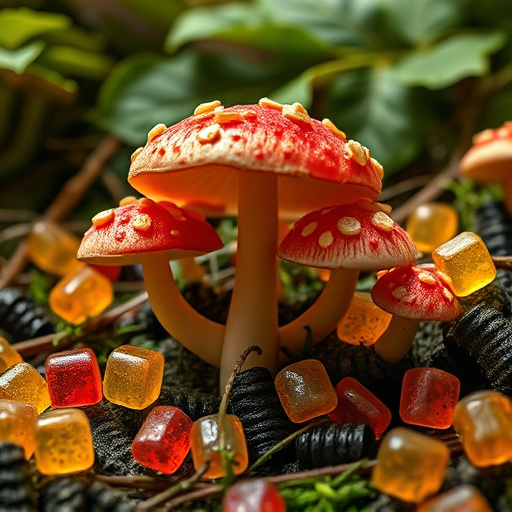
Psilocybin, a naturally occurring compound found in certain types of magic mushroom gummies, has gained significant attention for its potential mental health benefits. Research suggests that controlled and therapeutic doses of psilocybin can lead to profound psychological changes, including reduced anxiety, depression, and even enhanced creativity. This compound interacts with the brain’s serotonin receptors, prompting a state of altered consciousness often described as mystical or spiritual. Many users report feeling increased empathy, emotional well-being, and a sense of connection to nature after consuming magic mushroom gummies containing psilocybin.
The therapeutic potential of psilocybin extends beyond its ability to induce a unique consciousness. Studies have shown promising results in treating post-traumatic stress disorder (PTSD), substance use disorders, and end-of-life anxiety in terminally ill patients. As the world of mental health research continues to explore these compounds, magic mushroom gummies infused with psilocybin offer a novel and potentially effective approach to addressing various psychological conditions, making them an exciting area of interest for both healthcare professionals and individuals seeking alternative treatment options for their mental well-being.
– What is Psilocybin?
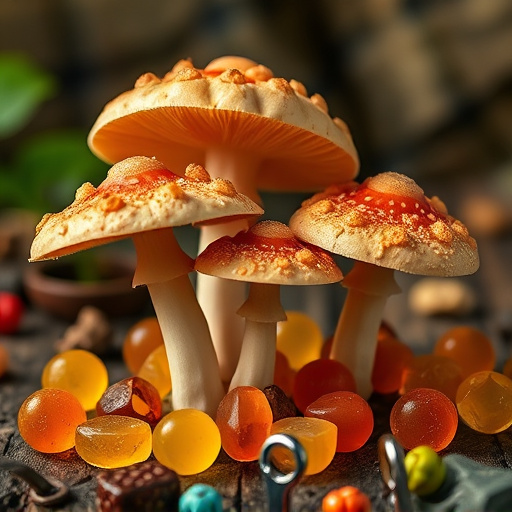
Psilocybin, a naturally occurring psychedelic compound found in certain species of fungi commonly known as magic mushrooms, has gained significant attention for its potential therapeutic benefits. When consumed, psilocybin promotes altered perceptions and heightened consciousness, often referred to as a “trip.” This compound interacts with serotonin receptors in the brain, leading to changes in mood, thought patterns, and sensory perception.
In recent years, there’s been growing interest in psilocybin for its positive impact on mental health. Research suggests that magic mushroom gummies, which are edible forms infused with psilocybin, can be effective in treating conditions like depression, anxiety, and post-traumatic stress disorder (PTSD). The soothing and introspective effects of these gummies allow individuals to explore their minds, process emotions, and gain new perspectives, making them a promising alternative or adjunctive therapy for those seeking support for their mental well-being.
– Historical Use and Modern Research on Psilocybin's Therapeutic Properties
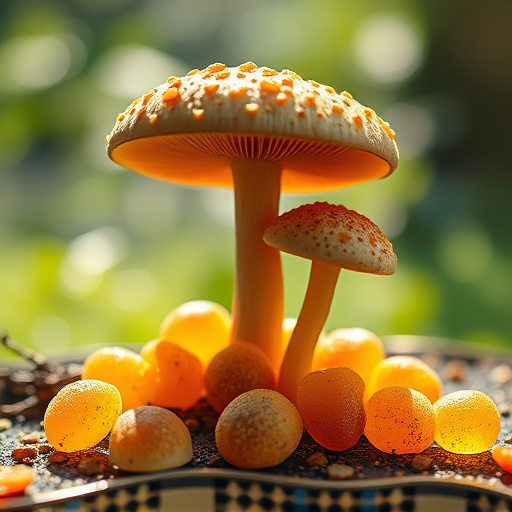
Psilocybin, a compound naturally found in certain types of magic mushrooms, has been used for centuries in various cultural traditions for its spiritual and therapeutic properties. In recent years, modern research has sparked renewed interest in psilocybin’s potential to improve mental health. Studies have explored its effectiveness in treating depression, anxiety, and post-traumatic stress disorder (PTSD), often with promising results. The unique way psilocybin interacts with the brain has led to a surge in interest from the scientific community, particularly in the context of psychological therapies.
This growing body of research suggests that magic mushroom gummies, which deliver psilocybin in a controlled and edible form, could be valuable tools for therapeutic applications. By offering a less intimidating administration method compared to traditional psychedelic therapy, these gummies have the potential to make evidence-based treatments more accessible. As with any substance, responsible use and professional guidance are essential when exploring psilocybin’s therapeutic properties, especially within the context of mental health support.
Psilocybin, a natural compound found in certain magic mushroom gummies, has garnered significant attention for its potential therapeutic effects on mental health. Historical uses combined with modern research highlight its promise in treating conditions like depression and anxiety. While more studies are needed, the current findings offer hope for innovative and natural approaches to well-being. Magic mushroom gummies, as a convenient and discrete delivery method, could play a pivotal role in making these benefits accessible to those seeking alternative solutions for their mental health journey.

